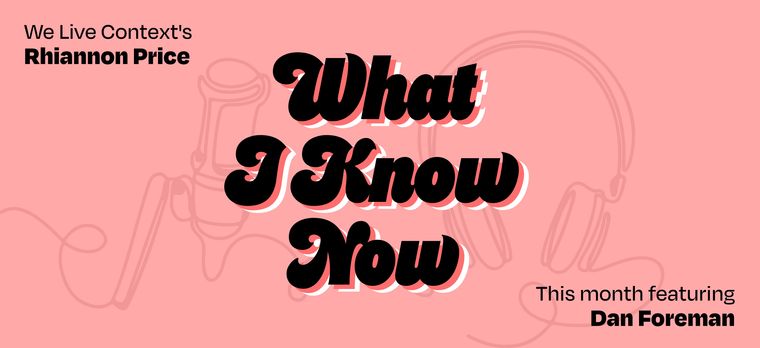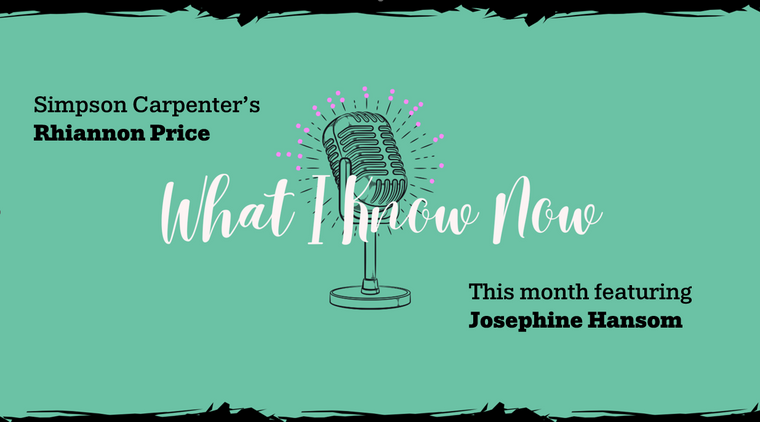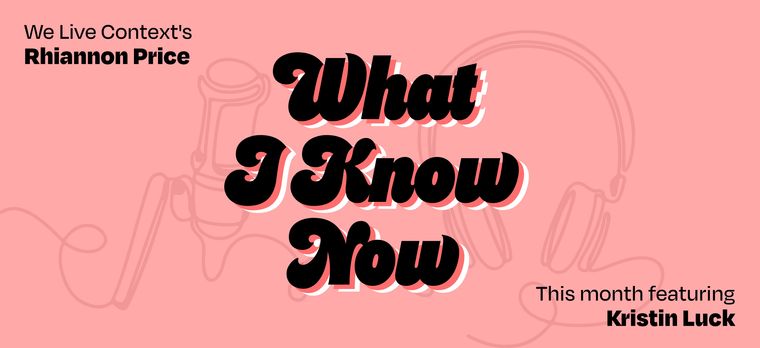What I Know Now... Finn Raben
Each month, We Live Context’s Rhiannon Price asks some familiar faces in the MRX world what they have learned about themselves and the industry on their journey so far.
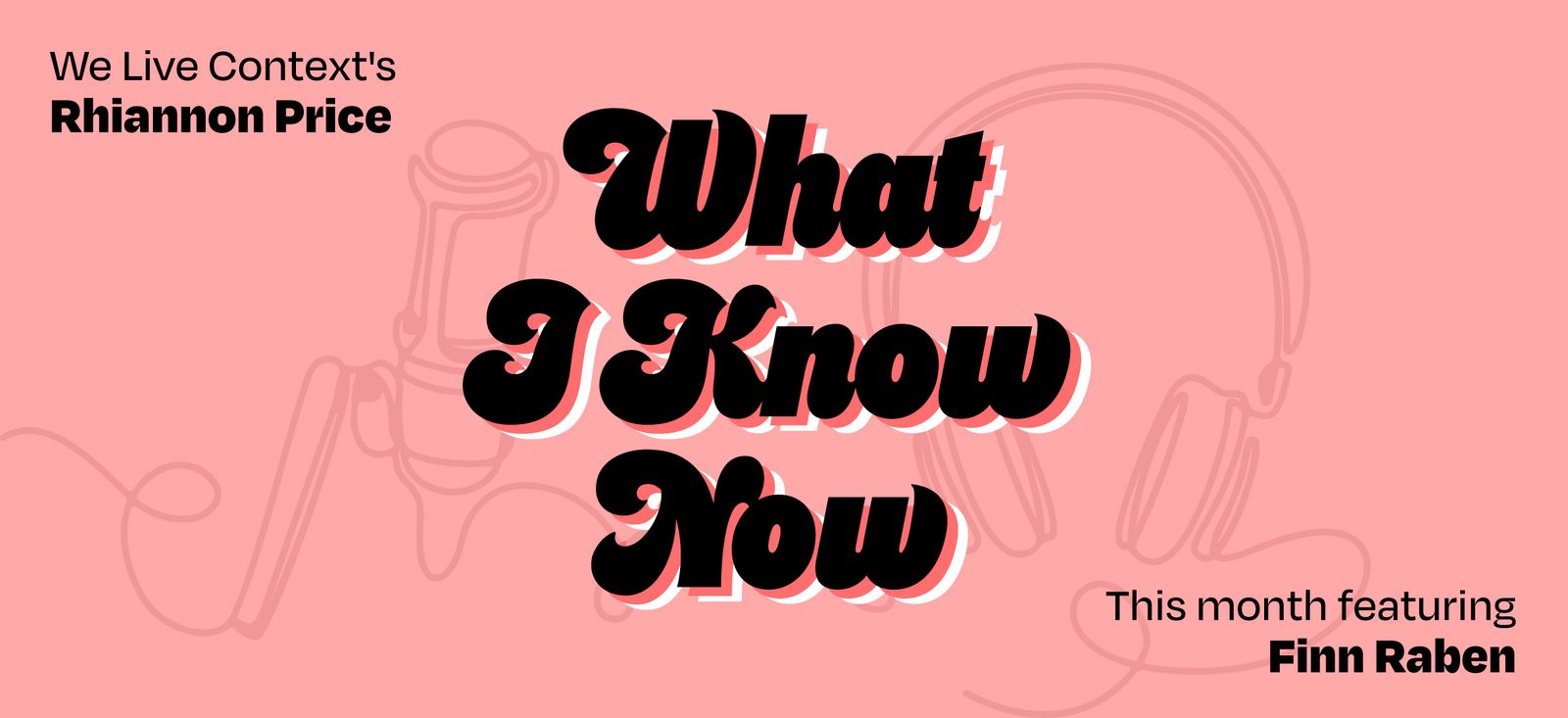
I’m lucky enough to have interviewed some super interesting people throughout my career. People from all over the world. People from all types of professions. People from many different backgrounds. I’ve spent days in their company taking it all in. I’ve seen them laugh, cry, and get angry about the twists and turns their path has taken them on. Be it a South African entrepreneur in Soweto or a Saudi millionaire, I have learned a lot about how people get to where they are going and their advice for life. But until recently, I have never really turned the lens inward. I have never asked my peers or the people I most admire in market research what their advice for life is. How they got to where they are. How they see things. But when I did, I found it wonderfully inspiring and not only a little bit transformative.
And so, I thought it was about time that we celebrated the wisdom of our MRX crowd and let their stories inspire us.
This month I spoke to Finn Raben, former ESOMAR President, Founder of Amplifi Consulting, Advisor, Lecturer and all round industry linchpin, about being a third culture child, setting up the Irish Child Line, researching Playboy for the Catholic church and lecturing at a college where technology is banned.
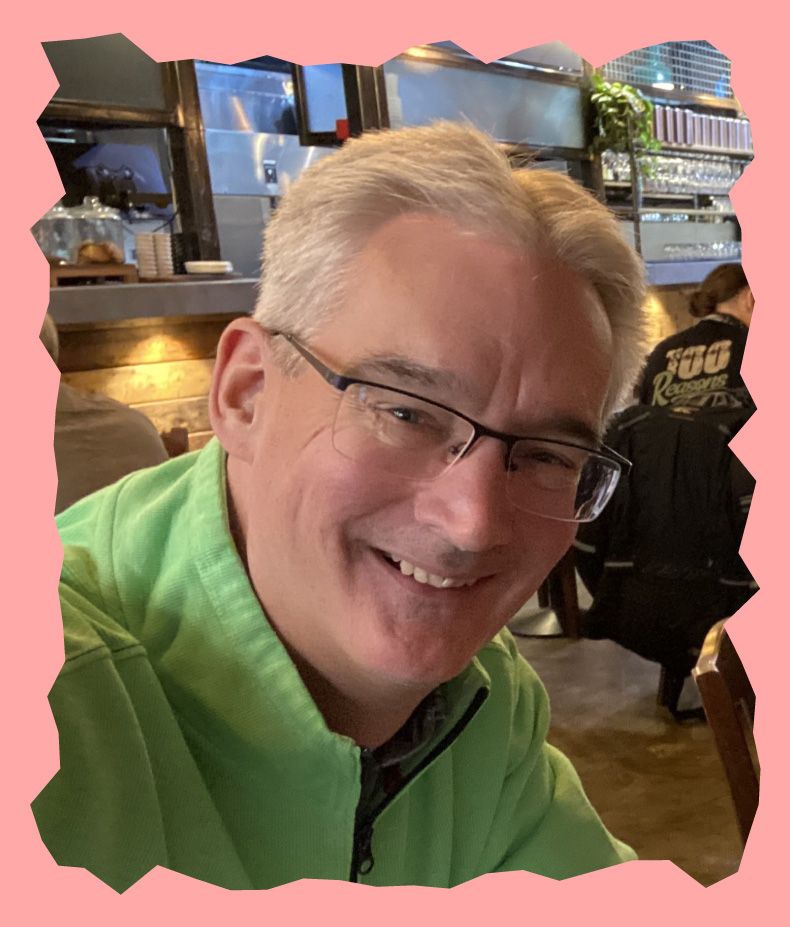
Let’s start like we mean to go on with the “big one at one”…Are you where you thought you would be at this point?
No, probably not. I'm a slightly odd fish in that I do things because I think there's a greater good. One of the reasons I switched from the commercial side to the advocacy side was because I thought the industry needed something that it could pride itself on. While there was an undoubted commercial challenge, we are a very undervalued and under recognised industry in many ways, and that was the thing that attracted me to the ESOMAR role. And I think there's still work to be done in the industry, both at the national level and international level. So, am I where I thought I would be? No, because, I think there's still some unfinished business there.
I'm very interested in your journey and how you got to where you are - what brought you to market research in the first place?
Oh gosh! My first job was the National Development Officer for the Irish Society for the Prevention of Cruelty to Children and one of the most enjoyable aspects of that was helping to set up the Irish version of Child Line…which was a huge thing at the time. And needless to say, the number of reported cases of child abuse suddenly skyrocketed, and the government and all the various health agencies were faced with a real question –is abuse on the rise? Or is this simply a question of it being better brought to light? So, the discussion around those levels of perception and incidence started to intrigue me more and more.
But with the Child Line job, I was working 80-90 hours a week. I was knackered. Then a friend of mine who was in a market research company said they were recruiting for new people, which felt like the stars were aligning.
What type of research did you move into at that point?
Initially it was qualitative research, and then I was somehow either convinced or blackmailed to move into the dark side of quantitative!
And how did this change feel?
Well obviously, in one respect, it was lovely to get a life back. And also, at that time, Ireland was a fast developing economy and was moving out of some of the legacy social shackles it had. So, one of the more interesting pieces of work I did was for a very prominent Catholic organisation. The government was debating whether it was going to relax its publication laws and allow - say it quietly (Playboy!) – to be sold in newsagents, and this particular organisation wanted us to produce a set of results that they could present to the government to say the law shouldn’t be changed as it would tear apart the fabric of Irish society! Those were very interesting times!
Oh this all sounds so interesting! What a start to your career! What intrigues me is that it’s only relatively recently that you made the move to set up your own agency, why not do that sooner?
I guess I needed to do something different. I'm a third culture child - born and raised abroad- and having lived in the Far East, Middle East and Europe, the way my head works is that I am attracted to a job because there is both a commercial and (hopefully!) a social challenge. Many people would change jobs to get paid more, but that's never been me. For example, I took on the ESOMAR role because it was a dying organisation (most of its members were aged over 45), in dire financial straits - and its relevance was coming under question. And yet, I knew that the research profession needed a voice and I felt that maybe if we can sort the business out, we can give the profession a voice. But going back to your original question, now I'm a one man, international consultancy I'm doing things that I would never have had the chance to do previously.
Can you give me an example of some of those things which give you the personal and professional payback now that you weren't getting before?
When you represent an entire industry, you do need to try and make progress at a pace that suits all members and countries. In this time of technological evolution, that can represent challenges. One example is that I find the ethics of AI really interesting, and there are a number of companies I now consult for now that are trying to work out how to use AI in a way that gives them competitive advantage, but that also demonstrates their ethical strength in the development of the technology…you might say that’s what Associations also do – and you would be right – but the pace of accomplishment is far faster when working with just one company. Another example is that I have started to lecture, which is an extremely rewarding manner of sharing knowledge and expertise, and (hopefully) influencing the next generation!
We need people like you, Finn!
Well, we all need to draw a line in the sand and fly a flag every now and then and say, “Come on guys?!!”. It's like the whole debate at the minute about sample quality, you know? The popular ‘cure’ seems to be oh, let's focus on making shorter, better questionnaires and reducing fraud, bots etc.
But prevention is better than cure, so why not focus on the relationship we initiate with these people, engage with them better, pay them better and be more considerate with the number of invitations they receive, rather than abuse our primary resource such that we require an ever-increasing number of contacts to fulfil our desired effective sample numbers? We do that with B2B sample, so why not do it with consumer sample? (The answer will probably be: “Cost”, but the solution is to advise buyers and suppliers of the benefits of treating respondents better!)
Yes, absolutely, this is something I’ve felt passionate about for years - treating our participants like they’re people and bringing them in on it.
You’ve previously spoken about how passionate you are about supporting the next generation, but what have you learned from them?
Oh gosh, I mean lots. I think one of the things that makes a good researcher is that we are - by nature - curious people, right? And therefore, things that happen and trends or evolutionary patterns are always of interest. With the younger generation you learn about how language evolves, how their free time evolves, what their work expectations are. One of the most enjoyable times in our family's day is when we sit around the table with our kids and their respective partners and just chat about life, how they see it, what they see as the problems and what the future’s going to be like. And you just think, wow. It’s absorbing those signs, those impressions, those views – that’s what makes us better people.
It's that old cliche where we don't own the planet, we only look after it for the next generation. And so far, we've done a pretty poor job of it, to be honest. So what can we do better?
Ok, so just changing track a little bit, I'm fascinated what achievement means to different people, and also how this differs to when people were younger.
When I was approached to join AGB, which then became TNS, I was working for Nielsen. So the guy from TNS comes over to me and says “listen, Finn, your name was passed to me quietly. Here's the problem. The household panel is in complete *****. Can you help us resurrect it?’ And I said ‘no, you're kidding!’ So I'm there, not interested at all because Nielsen has got almost 100% market share. Why in the name of God would I want to help the competition at this stage?! Anyway, after a number of lunches and discussions, he convinced me of the challenge that existed, so I agreed as now it had become a very interesting and mentally stimulating commercial challenge, and the participating households were ‘owed’ a company that respected them and used the information they provided in a better way . So, whenever I took on a role, it was for that challenge. And, if I could meet the challenge then that, for me, was achievement; sure, remuneration levels changed in each role, but personal satisfaction came from making the difference, not from the financial uplift (or downlift!).
My father retired quite early - around about 56 - and this was a man who (to the best of my knowledge), created the very first video library ever in the world! We were living in Beirut in the late 70’s, when the TV stations and radio stations were getting regularly disrupted, so there was no regular source of entertainment. At that time Philips, Sony and JVC were in a global battle as to which video format would become the consistent one. VHS, VCR or Betamax. As my father was working for Philips at the time, he got them to ship him a load of VCR machines and he got all of his colleagues in Holland to record English language programs from Dutch TV and ship those video cassettes with the players. And ‘just like that’ he created a video library of English language programming in Beirut…and if you bought the player, you could have access to the library….and it was a roaring success.
Within six months, my father came home one day with a big cheesy grin on his face and told us that the Lebanese office had now recorded the highest turnover in the region, thanks to the video business.
Eighteen months later, the corporate lawyers decided that copyright law was being breached, and shut the operation down! Anyway, that was my dad. He was a very interesting man and had a great reputation for restoring businesses to profitability.
However, when he retired, a consultancy deal he was working on never transpired; instead he bought six satellite dishes in his house in West Cork and just watched TV for the rest of his life. He (sadly) never had the chance again to bring that remarkable power of ‘rejuvenation’ to a business again. So, for me, it's the mental stimulation of a challenge that gets you out of bed in the morning and whether through this little consultancy at the minute, or the lecturing or whatever, I think we must stay mentally challenged for as long as we can – that, in itself, will be a fantastic achievement.
Thank you for sharing that story. And you mentioned being a third culture child, what do you think those early experiences of living in different cultures has given you in terms of what you prioritise when it comes to life and work?
I think I'm incredibly lucky to have lived in so many different countries and to have learned so many languages, most of which I've now forgotten again, by the way.
How many languages do you speak?
Well, now I speak English, French, Dutch and Spanish, but I used to speak Thai, Malay and Arabic. But when you don't have the occasion to practice them, you forget them… “use it or lose it” as they say.
So I'm incredibly lucky to have had all of those experiences, and it instilled in me a desire to give the same to my kids, which is why we moved from Ireland to France, and now to the Netherlands. And why I spend so much time on a plane! It's a huge privilege to be able to meet other cultures and learn their ways. Because that gives us a far better understanding of the world, a more objective view of the world and what needs to be done. I think people who don't travel, and who may never get a passport, miss so much. And, to be honest, I think that travel and exposure to other cultures and languages also teaches you tolerance and patience. That probably makes me less of an aggressive business person and more of an inclusive one as I'm far more likely to try and talk it out or be more sanguine about it, which has its own strengths and weaknesses as an approach.
I should add here that I am also incredibly lucky to have a wife that has been “up” for those adventures, who is always open to considering new ones, and who has supported our family throughout. There is no truer saying that: “behind every successful man is a woman who helped him get there!”
One question I have asked everyone is, do you deal in regret?
No, not really…I think if you can be true to yourself you are less likely to have any regrets, and your life will be far more rewarding and enriching. One of the things that perhaps comes from my journey in life is that I do take time to consider the viewpoints from all sides in a debate or argument and what the implications are, which is my way of coming to a decision that I won’t regret. Give yourself time and space to think.
I lecture in one particular college where no technology is allowed. No mobile phones, no computers, exams are done in handwriting, presentations and even lectures are not allowed to use PowerPoint or any form of video stimulus. I know, the Stone Age. And as I was explaining this to my kids, they go ‘Dad, that's not a university, that's a prison’!! (I have to say, kids are the most amazing “reverse mentors”, and my two boys are exactly that!!
But, the net result of that college’s approach is that when you ask the students a question, they're listening – they are not distracted by being on their phone or whatever, and they take time to think. There is much less aggro in the class and social discourse is far more prevalent as they have to summarise things themselves - they can’t go to YouTube and say, ‘oh, what did that book say?’. There's an element of mental training/discipline that occurs in that environment, which I think is far more conducive to better social engagement than allowing social media to dominate their lives, and which might hopefully reduce the amount of regret they will endure?
Moving on again, do you have any personal habits or rituals that help you?
Here's the other thing, I don't worry much, or suffer a lot from stress. In that regard, my wife is an even bigger support to me, because as a mum, she does most of the worrying for us!!
However, I've cooked all my life. I'm an only child who was put into a boarding school when I was 10, so I've had to be reasonably independent my entire life. And I just love cooking! If I have had a busy day where I'm trying to juggle 1000 things, I love to come home and just cook for an hour and a half. I don't want a recipe, I just want to open the fridge door, see what's in there and make something….that’s how I switch my mind off.
Another thing is I love living in another culture for a little while. We have a small place in the South of Spain, in the middle of Andalusia, which has a rich history and just visiting a place like the mosque in Cordoba gives you pause. It reminds me that the world is a much bigger place than the **** you were dealing with on your desk yesterday or the day before. We only have one life, right? So, let's enjoy it and do good with it. I've seen enough poverty and deprivation and conflict in my life that I'm always going to try and do something to minimise that.
And finally, turn off technology; if it’s on 24/7, then so are you. One of the funniest moments I encountered was when I was in an airport lounge. At a certain moment, I enter the men’s room (apologies if this lowers the tone of the conversation) and there's clearly a gentleman in one of the cubicles who has severe stomach problems. But his telephone goes off…. And despite all of his gastric challenges, he answers it!! I mean, Jesus man, sort yourself out, and then take the call! There are times when turning off technology is essential!
Ha, that is quite the dedication to staying connected! So moving on, can you tell me about any mentors you’ve had along the way?
I consider myself very lucky to have had lots of brilliant people that I have worked for and with, that have shaped my thinking…it’s a long list, but worthy of special mention are Richard Penney, Mike Penford, Judith Passingham, Adrian Chedore, Gunilla Broadbent, Adam Phillips, Reg Baker and Andrea Rademeyer; while some are no longer with us, their influence on how I have tried to conduct my life has been significant. Top of the list however, is my wife Ann – I’m hugely grateful to have someone who will listen to me and who understands that if I do come home cursing about something, she will set me straight. And my kids will always ensure that I don’t take myself too seriously! I think it's really important not only to have a business guide, but also a life guide. Without Ann and my two boys, I wouldn’t be where I am today, or have had the amazing adventures we have enjoyed en route.
But, coming back to what does the industry need? When I worked in TNS, the glass ceiling was horrific. People who were absolutely brilliant were not given an opportunity because they were women. And I thought that was a disgrace. I think it's brilliant nowadays when you look at the number of women-owned businesses and how they just do business differently and better. I feel that men are incredibly short sighted and not enough credit is given to the impact and value women bring to business. My wife is an example of that, and I'm bloody lucky to have her in my life.
That’s so perfectly put, thank you for highlighting that. So, let’s end on some quick fire recommendations..
If you read just one book, what would it be?
The Culture Map by Erin Mayer. I's about different cultures and how to interact with them, understand them and live with them. Because, like I said, that brings around greater understanding and tolerance for who people are and what they do.
If you listen to just one podcast, what would it be?
The Rest Is Politics. Politics is a sort of mirror of the society that we live in, so it fascinates me. I’ve always been heavily involved in political polling, so I'm saddened by the fact that we have great friends in the US and when we go there, we can't talk politics because the divisions are now so entrenched that even informed debate is no longer tolerated.
If you follow just one person, who would that be?
Michelle Obama, probably. Because again, I think she is somebody who tries to bring sense to life.
And, finally, if you remember just one thing going forward.
You've only got one life. Enjoy it.
